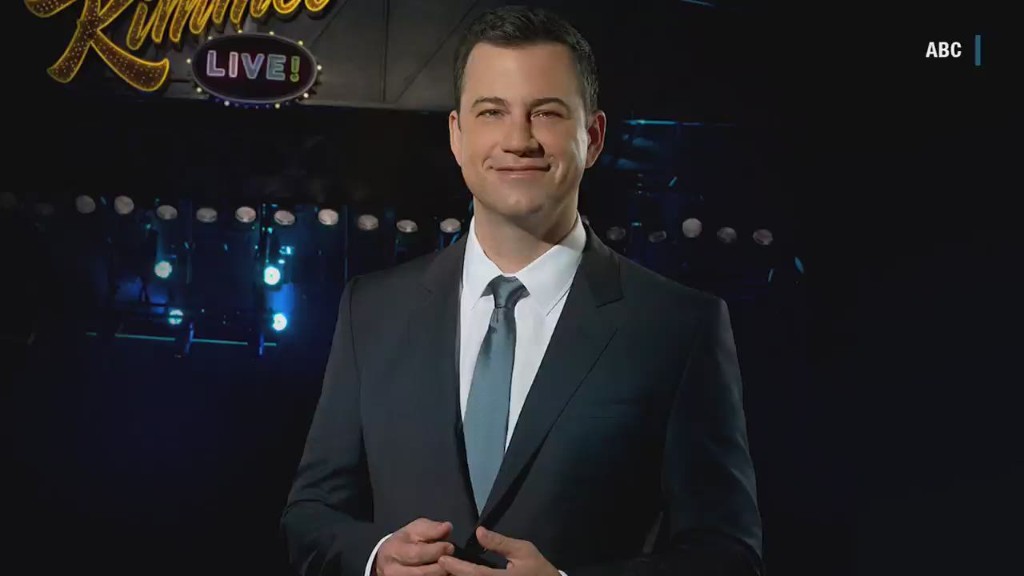
After David Letterman and Jon Stewart exit their late night posts later this year, Jimmy Kimmel will have the longest-running show on late night TV.
But with social media allowing viewers to watch shows whenever they like, what does the term "late-night" even really mean anymore?
To find out, I spoke with the "Jimmy Kimmel Live" host at the South by Southwest conference in Austin. In the interview, Kimmel, who is in town for a week long stint of shows, touched on the retirement of his idol David Letterman, the origin of his famed sketch "Mean Tweets," and what social media means to late night TV.
Here is the edited version of the conversation.
So, Letterman is stepping down in May.
What?! Why wasn't I told about this? [laughs]
I know he's had a huge influence on you, so what is late night without David Letterman?
Well, it's very sad for me, personally. When I was growing up I was, like, known in high school as the kid who watched David Letterman. I had a "L8 Nite" license plate, I watched the show, and we didn't have a VCR, so I had to watch it live. This was way before we had YouTube where we could pick and choose every little thing we wanted to.
But I love Dave, and I'm going to miss him.
Speaking of Dave, he was really someone who distorted the formats of TV. I feel like you're someone who distorts social media in a way. So what is one of your favorite sketches that went viral?
Well, I enjoy the Halloween candy videos.
Our first big viral video was "I'm F***ing Matt Damon." That one really became a big deal, and I think then people started looking to us for viral videos but that never really was, and still really isn't our intention with 99% of the stuff we do.
We just figure that we're doing a television show and if things catch on afterwards, that's great.
At your SXSW session on Saturday, you asked the audience how many had seen "Mean Tweets — President Obama Edition" on TV and most kept their hands down.
Yeah, I asked how many saw it online and almost everyone in the room raised their hand. Then I asked how many had seen it live on television, and, like, 8 people raised their hand.
So, do you think that someday social reach might be as important as TV ratings?
Well, social reach is greater than that of television if you really add it up. We have, I don't know, something like 50 million people watching our videos every week. It's pretty crazy when you look at it. We don't have that many watching on television.
But still ultimately our job is to kind of sell commercials, so from a financial standpoint television is still by far the most important thing.
How do you and your staff use social media to put the show together?
We want to know what people are talking about before we go about planning what we're going to make fun of. So everyday we check what's trending, what people are watching online, what people are writing online. We look on Twitter (TWTR), we look on Instagram, we look on Facebook (FB). These things definitely have a major impact.
It used to be all from the newspaper, and now when the newspaper arrives at your door it seems like a week and a half old.
One of your most popular sketches on social has been "Mean Tweets." How did that come about?
The origin of "Mean Tweets" is that I was sitting at the kitchen table with my friend Kelly Oxford, who is popular on Twitter, and Kelly was reading some of the terrible things people were saying about her on Twitter.
To make her feel better, I read even worse things that people were saying about me. Then my wife, who is a writer on the show, said this would be a great bit. We were like, yeah this would be great, and so we started pitching it to celebrities.
So finally, what do you think the future is for late-night TV? Where do you want late-night to go?
Where do I want it go? Well, I'd like to be the only show on, but that doesn't seem likely. [laughs]
But I think what will happen is that there will be hundreds of late-night talk shows, and late-night — even that term — won't mean anything because now you can watch anything at any time.


